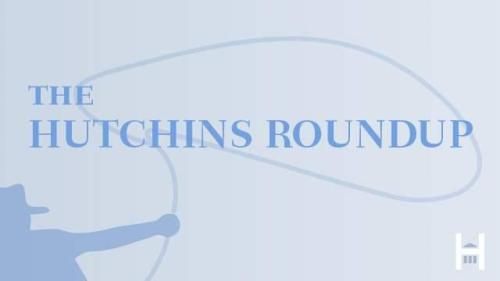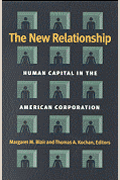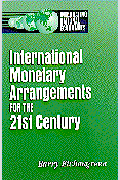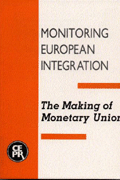Studies in this week’s Hutchins Roundup find that Trump’s tweets criticizing the Federal Reserve lower expectations about future interest rates, monetary policy affects firm employment by changing collateral value and more.
Want to receive the Hutchins Roundup as an email? Sign up here to get it in your inbox every Thursday.
Trump tweets lower expectations about future interest rates
Francesco Bianchi of Duke University and Thilo Kind and Howard Kung of London Business School find that President Trump’s tweets criticizing the Federal Reserve have lowered the expected federal funds target rate by a total of 10 basis points over the past year. Comparing the trading prices of futures contracts before and after each tweet, the authors find that for short-term contracts exposed to one more FOMC meeting before maturity, each critical tweet lowers expected rates by 0.18 basis point. As the number of FOMC meetings before maturity increases, the tweets have a greater impact on expected rates; for a contract that will encounter eight more meetings, for example, a critical tweet lowers expectations by 0.5 basis point. The coauthors find stronger market responses to tweets in the period after July 2019, suggesting that the July decision to lower rates after a summer of heavily critical Trump tweets might have induced the market to believe that the President can influence monetary policy.
Monetary policy affects firm employment by changing collateral value
Saleem Bajah, Angus Foulis, and Gabor Pinter of the Bank of England and Paolo Surico of London Business School find that monetary policy affects firm employment through the effect of changes in housing prices on the collateral of financially constrained firms. Using firm-level data of private and public UK firms from 1997-2017, the authors observe that 2/3 of younger and more leveraged firms use their directors’ home as collateral. Within this group, the authors find that, in response to monetary policy shocks, firms with directors residing in areas where house prices are highly sensitive to monetary policy contract their employment by 1-1.5 percentage points more than firms whose directors live in areas with less sensitivity. The authors note that this collateral channel explains a sizeable share of the aggregate employment response to monetary policy.
Poor air quality affects cognitive performance
Using chess tournaments data from Germany, Steffen Künn of Maastricht University, Juan Palacios of MIT, and Nico Pestel of IZA Institute of Labor Economics find that air pollution severally hampers cognitive performance. The authors evaluate players’ moves using a chess engine that calculates the optimal move and classifies certain deviations as errors. They find that a 10 microgram per cubic meter increase in the indoor concentration of fine particulate matter increases the probability of making an error by 26 percent. The probability of error increases if a player is older or in a stressful situation, such as playing against a higher ranked opponent or facing time pressure. The authors conclude that there are strong direct health effects from air pollution, even at moderate levels, and suggest that there may be implications for productivity as more jobs require non-routine cognitive tasks.
Chart of the week: Global government debt at its highest level in peacetime
 Source: Financial Times
Source: Financial Times
Quotes of the week:
“The current situation involves pushing rates lower when asset prices, and in particular some risky asset prices, already seem inflated. I don’t see current financial risks as causing a downturn, but such conditions have the potential to amplify a downturn should it occur [.…] Additional accommodation is not needed for an economy where labor markets are already tight – and risks further inflating the prices of riskier assets, and encouraging households and firms to take on what may be too much leverage,” says Eric Rosengren, President of the Boston Fed
“I’m concerned that we’ve needlessly raised interest rates over the past three years and put the economy into a more dangerous position that makes it more vulnerable to shocks that could hit us. Why are we trying to contract the economy?” says Neel Kashkari, President of the Minneapolis Fed












Commentary
Hutchins Roundup: Market’s response to President Trump’s tweets, monetary policy channels, and more
September 26, 2019